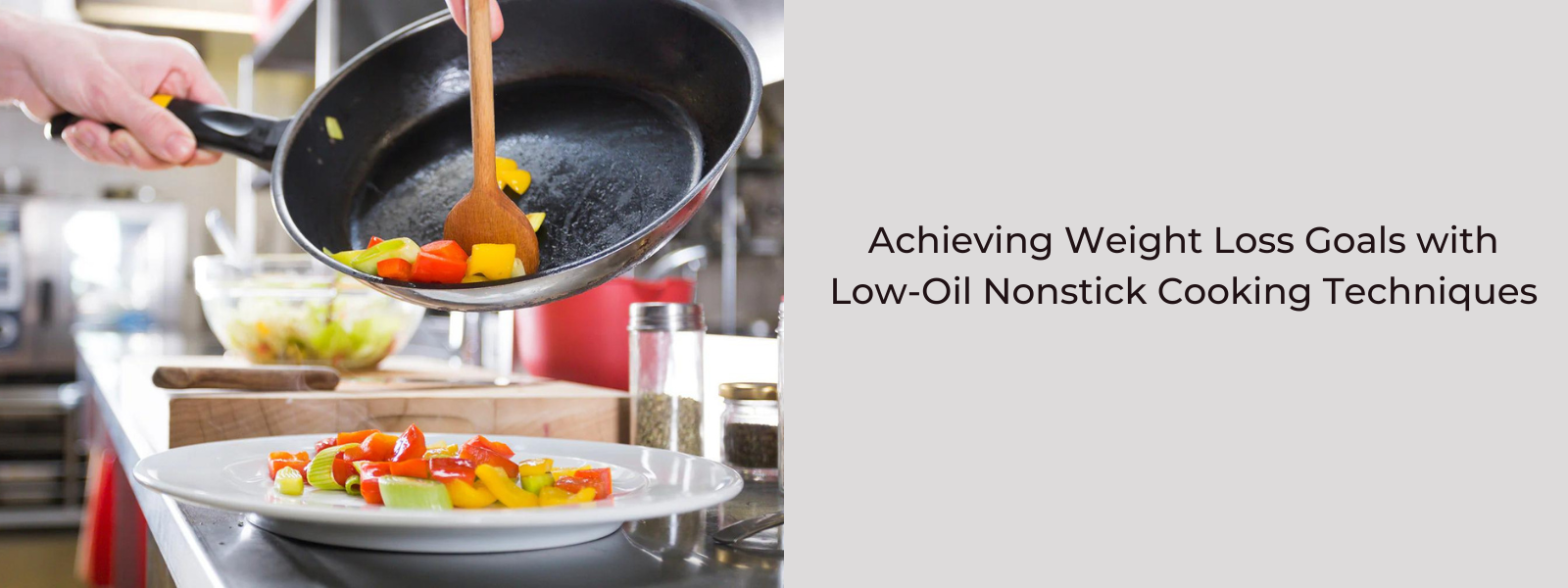Cooking without oil, often referred to as oil-free cooking, is a culinary approach that involves preparing dishes without the use of traditional cooking oils, such as vegetable oil, olive oil, or butter. Instead of relying on oil for sautéing, frying, or flavor enhancement, this style of cooking utilizes alternative methods and ingredients to achieve similar results.
Table of Contents
What Do You Mean By Cooking Without Oil?
Cooking without oil encourages a focus on natural flavors, creativity, and healthier alternatives, making it suitable for a range of dietary preferences and health-conscious lifestyles. The primary goal of cooking without oil is to reduce the overall fat content of meals, making them lower in calories and saturated fats, which can be beneficial for heart health and weight management. It also caters to dietary preferences and restrictions, such as vegan or plant-based diets, that avoid added fats. Instead of oil, techniques like sautéing with water or broth, steaming, baking, and using non-stick cookware are employed to cook and flavor dishes. Various substitutes, like vinegars, citrus juices, nut butters, and herbs, are used to add flavor and texture without the need for oil.
Are There Any Healthier Alternatives To Cooking Without Oil?
- Non-Stick Cookware: High-quality non-stick cookware is a key tool for oil-free cooking. These pans have a non-stick coating that allows you to sauté and cook without sticking, minimizing the need for oil.
- Steam or Boil: Steaming or boiling vegetables and other foods is an oil-free cooking method that retains their natural flavors and nutrients. Invest in a steamer basket for your pots or use an electric steamer for convenience.
- Baking and Roasting: When baking or roasting, use parchment paper or silicone baking mats to prevent sticking. This eliminates the need for oil while keeping your dishes from adhering to the pan.
- Grilling: Grilling is an excellent oil-free cooking method that imparts a smoky flavor to food. Marinate or season your ingredients for added flavor, or use a grilling spray made with minimal oil for non-stick purposes.
- Sautéing with Broth or Water: Instead of oil, use vegetable broth, water, or even white wine to sauté onions, garlic, and other ingredients. This adds flavor without the added fat and is suitable for a wide range of recipes.
Does Non-Stick Cookware Allow You To Cook Without Oil?
Yes, non-stick cookware is excellent for cooking without oil. Non-stick pans are designed to minimize food sticking to the cooking surface, allowing you to cook with minimal to no oil. Here are some reasons why non-stick cookware is beneficial for oil-free cooking:
- Less Sticking: Non-stick pans have a special coating (often made of PTFE or ceramic) that reduces the likelihood of food sticking to the surface. This means you can sauté, stir-fry, or cook various foods without the need for oil to prevent sticking.
- Lower Fat Intake: Since non-stick cookware reduces the requirement for oil, it's an ideal choice for those aiming to lower their fat and calorie intake. You can enjoy the natural flavors of the food without the added fats.
- Versatility: Non-stick cookware can be used for a wide range of recipes, from omelets to pancakes, stir-fries, and more. The versatility of these pans makes them suitable for various cooking methods without oil.
Meyer offers the best non-stick cookware that guarantees outstanding non-stick performance. In addition, their cookware are 100% toxin-free and backed by international food organizations’ certificates. Check them out here.
Benefits of Cooking Without Oil:
Cooking without oil offers several benefits, both for your health and your culinary experience. Here are some advantages of oil-free cooking:
- Reduced Caloric Intake: Oils are calorie-dense, and by eliminating them from your cooking, you can significantly reduce the overall calorie content of your meals. This can be beneficial for weight management and calorie control.
- Lower Saturated Fat: Many cooking oils, such as vegetable oil and butter, are high in saturated fats, which can contribute to heart disease. Cooking without oil helps reduce saturated fat intake, promoting heart health.
- Healthier Fats: While oils can be high in saturated or trans fats, cooking without oil allows you to focus on healthier sources of fats, such as those found in whole foods like nuts, seeds, avocados, and fatty fish.
- Natural Flavors: Cooking without oil encourages you to savor the natural flavors of ingredients. This can lead to a heightened appreciation of the tastes and textures of your food.
- Dietary Flexibility: Oil-free cooking accommodates a variety of dietary preferences and restrictions, including vegan, plant-based, and oil-free diets. It's suitable for those who want to avoid added fats in their meals.
- Less Cleanup: Oil-free cooking can result in easier cleanup, as food is less likely to stick to the cookware, especially if you use non-stick pans.
- Better Digestion: Reducing fat intake may promote better digestion for some individuals, as high-fat meals can be heavy on the stomach.
Can Food Taste Without The Addition Of Oil?
Yes, food can taste delicious and satisfying without the addition of oil. The perception of good taste in food is influenced by a combination of factors, including the ingredients used, cooking techniques, seasonings, and personal preferences. Cooking without oil allows you to experience the natural flavors of ingredients. Vegetables, grains, legumes, and proteins all have their unique taste profiles that can be enhanced and appreciated without the masking effect of oil. Herbs, spices, and seasonings play a significant role in flavoring dishes. When used thoughtfully, they can create rich, complex, and satisfying flavors in your food. Achieving the desired texture in your dishes, such as crispy or tender, is often more dependent on cooking techniques than on the use of oil. For example, roasting or grilling can produce a satisfying texture without oil











Leave a comment